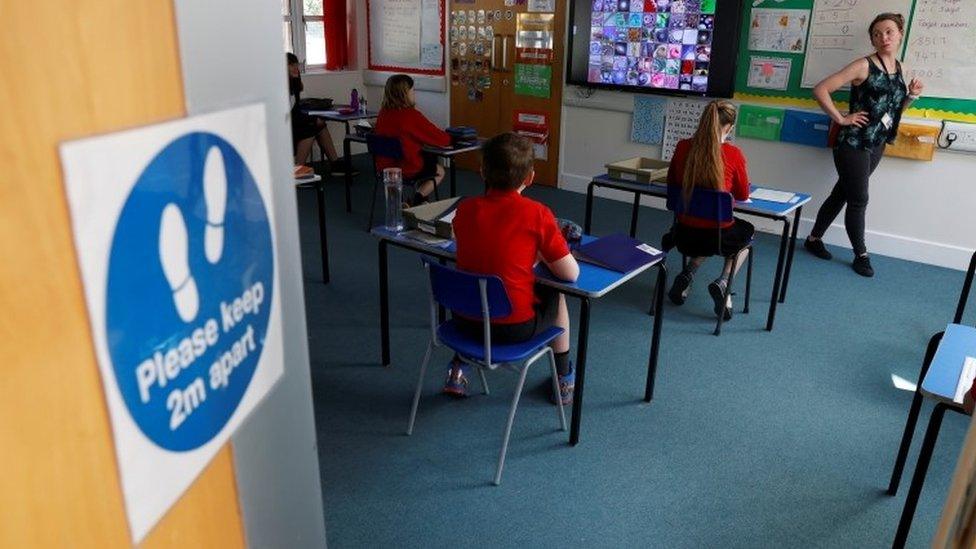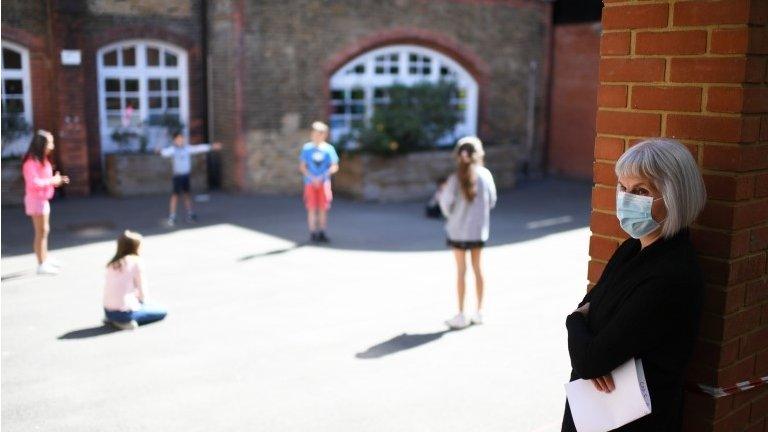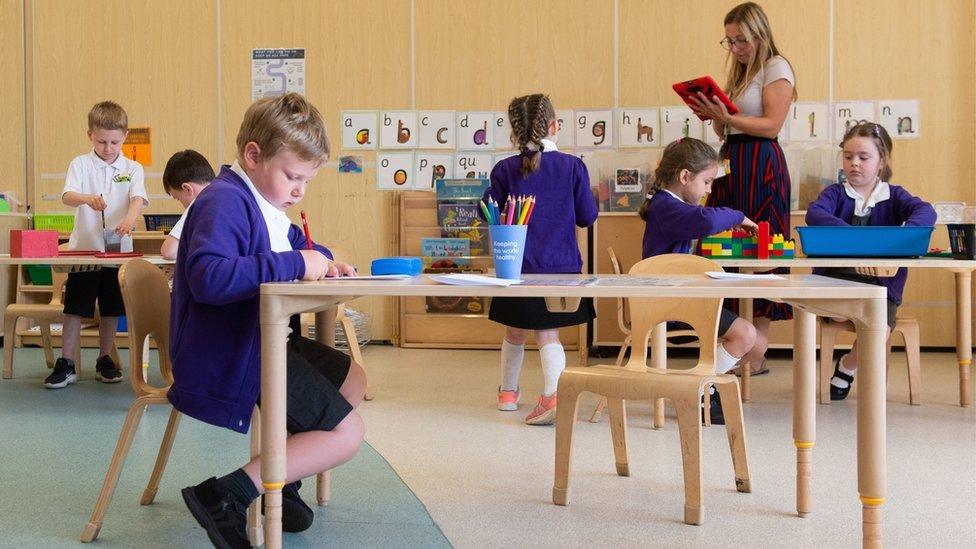Coronavirus: Schools to get final say on extra week
- Published

A school in Oxfordshire, with social distancing operating in class
Schools and councils will have the final say on whether the summer term is extended for an extra week, the Welsh government has said.
Discussions are believed to be continuing between government officials, unions and councils.
There are union concerns that extending the term to 27 July causes major problems relating to staff contracts.
Education Minister Kirsty Williams wants all pupils to get a taste of school from 29 June before the summer.
But some unions have questioned the safety and practicality of the proposal and have warned there may not be sufficient numbers of cleaners and teaching assistants to enable schools to open for an extra week.
The Welsh government wants the summer term to be extended to 27 July to allow a month of school before the holidays.
But unions representing support staff have said they cannot be required to work as their contracts only cover standard term times.
The Welsh Government said it believed the additional week would be "hugely important in helping schools take a phased approach in supporting all children and young people".
It also welcomed the "dedication" shown by local authorities, head teachers, teachers and school support staff who have responded positively to the announcement.
A spokesman added that decisions over term dates were "best taken by local authorities and governing bodies, as they are better placed to understand their local circumstances".
This raises the prospect that some schools may not open for a fourth week.
Alongside the additional week in July, Ms Williams has proposed extending this autumn's half-term break by an additional week.
It was announced earlier this month that schools will reopen for all year groups from 29 June, with no more than a third of pupils in school at any time.
But some education unions have opposed the plans, citing concerns about safety and the practical problems raised by staff contracts.
Unison, whose members include teaching assistants, kitchen staff, cleaners and facilities staff in schools say their members can only be asked to work the extra week on a voluntary basis
The union said it was "possible" some schools in Wales may not be able to open for the extra week of term because there is "no guarantee" that staff would be available.
Rosie Lewis, Unison's lead officer for schools, said staff such as teaching assistants and cleaners were not contractually obliged to work.
"Schools have gone ahead and made plans for that fourth week when our concerns are they may not actually have the workforce to run that extra week because members need to be asked to come in and work then," she said.
"There may be those who have holidays booked or who have other jobs over the summer holidays because this is a period for which they are not paid or contracted to be in school."
She said the issues should have been addressed before the education minister's announcement.
Although many staff would voluntarily work, she said they should not be added to any rota "automatically".
"The whole school team... this includes catering, cleaning, teaching assistants and also the caretaking and facilities staff… you're going to have to have those people in school in order for the school to operate.
"There are a lot of people there who you are banking on them agreeing to come to work for that extra week."
The chair of the Senedd's education committee said the well-being of children should "be at the centre" of the discussion about extending the summer term by a week.
Labour MS Lynne Neagle added that it was important to "maximize the amount of face-to-face time" pupils get before the summer break.
"There's a growing body of evidence about the impact of not being in school on our children," she said. "I'm really worried that it's going to seriously entrench disadvantage… [and] widen the attainment gap."
- Published24 June 2020

- Published3 June 2020

- Published17 June 2020
